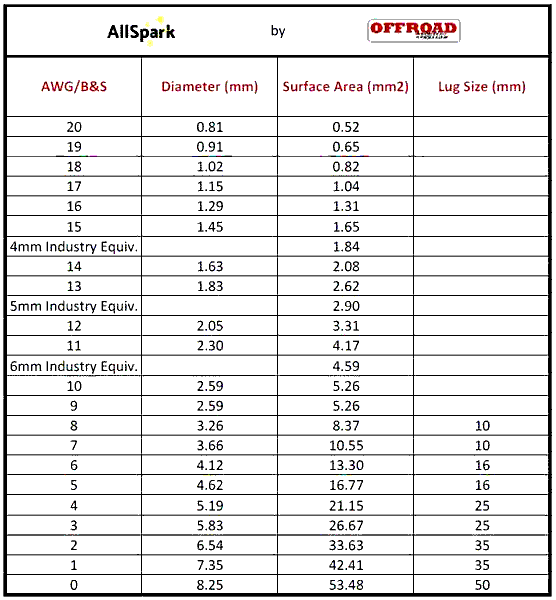Cable sizes for battery camping system
This is a continuation of the new project, a portable lithium-battery power system for camping, see the first post here:
https://bkhome.org/news/202004/portable-lithium-power-for-camping.html
It doesn't have to be a lithium battery -- my project can easily be
used with a deep-cycle AGM/GEL battery. The Amptron DC-DC charger that I
am using can handle all types of batteries.
In previous camping trips, I used somewhat undersized electrical
cables. I used a "6mm" automotive twin-core cable, 15m long, from solar
panel to the MPPT battery regulator. From the battery to my tent I used a
Narva "heavy duty" 5m cigarette-lighter extension cable (purchased from
Autobarn).
Thinking about the cable run from solar panel to MPPT regulator. You
need to be careful what the vendor is selling you when they claim "6mm".
6mm automotive cable is slightly less diameter than 10AWG. AWG is the
same as B&S -- these are American wire standards, widely used
internationally, including Australia.
I found a nice table of wire sizes, from here:

The table doesn't have it, but the wire diameter of "6mm" auto cable
is 2.42mm. Those diameters are actual copper wire diameter, not
including the insulation.
The big question is, how much power was I losing in that fairly thin cable? There is a formula:
| Length (m) x Current (A) x 0.017 |
||
| Voltage drop |
= |
|
| Area (mm2) |
...that constant 0.017 is for copper wire.
My 15m cable is 30m round-trip. My "250W" panel was at best only giving about 10A. Plug the values into the formula:
Voltage drop = (30 x 10 x 0.017) / 4.59
= 1.11V
Let's say that the panel is putting out a voltage of 16V, so the power output of the panel is:
Panel power out = 16 x 10
= 160W
And the loss in the cable:
Power loss = 10 x 1.11
= 11.1W
...that is a power loss of 7%
Do I want to throw away that much power? No...
Firstly, I decided on a shorter cable. I used 15m before, as there
was one site where I had to place the panel a long way from my car and
tent. However, can make-do with just 10m.
I purchased 10 metres of 6AWG from Big Al's on eBay. I like Big Al's,
delivery has always been remarkably fast. Though, my purchases were
pre-Covid-19, so I don't know about the current situation.
This is the cable I bought:
https://www.ebay.com.au/itm/124137673594

That is heavy cable! Expensive, but much cheaper than buying it locally. Plugging it into the formula:
Voltage drop = (20 x 10 x 0.017) / 13.30
= 0.255V
So the power loss is 2.55W, which is 1.6% ...ah, much better!
Then there is the 5m cable running from the battery (in the car) into
my tent, to run light, computer, fan ...and maybe even a TV. I have a
fridge, but that stays in the car.
I have not done quantitative measurements yet, but did have a problem
on the last camping trip. I took two laptops, my old power-hungry one,
and a modern baby one. I powered them (one at a time) through a 150W
inverter, and it would cutout when tried to run the old laptop -- this
was because the voltage into the inverter dropped to 11.5V, which causes
the inverter to turn off.
On that occasion, I was also running an LED lamp, and was charging my phone. Sometimes plugged a USB 1TB HDD into the laptop.
So the plan is to upgrade to 8AWG cable, and probably keep the length
of 5m, or maybe a tad longer, say 6m. Will need to do some calculation
of power load and voltage drop first.
Tags: nomad
